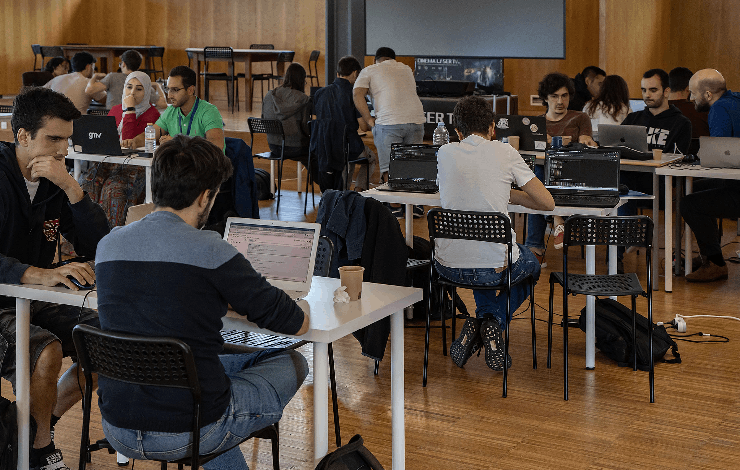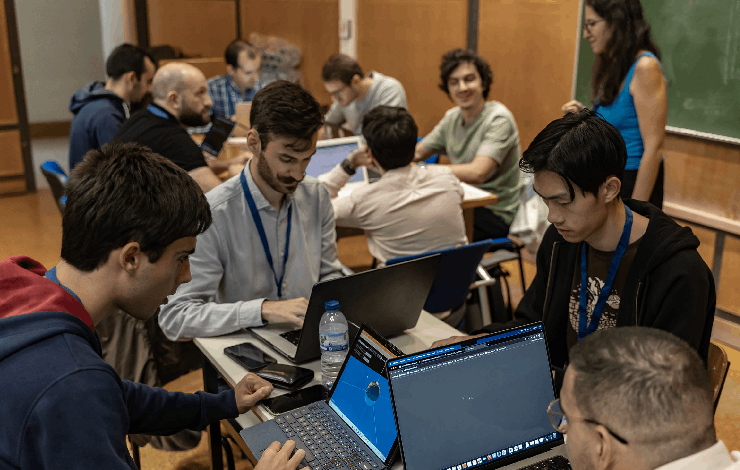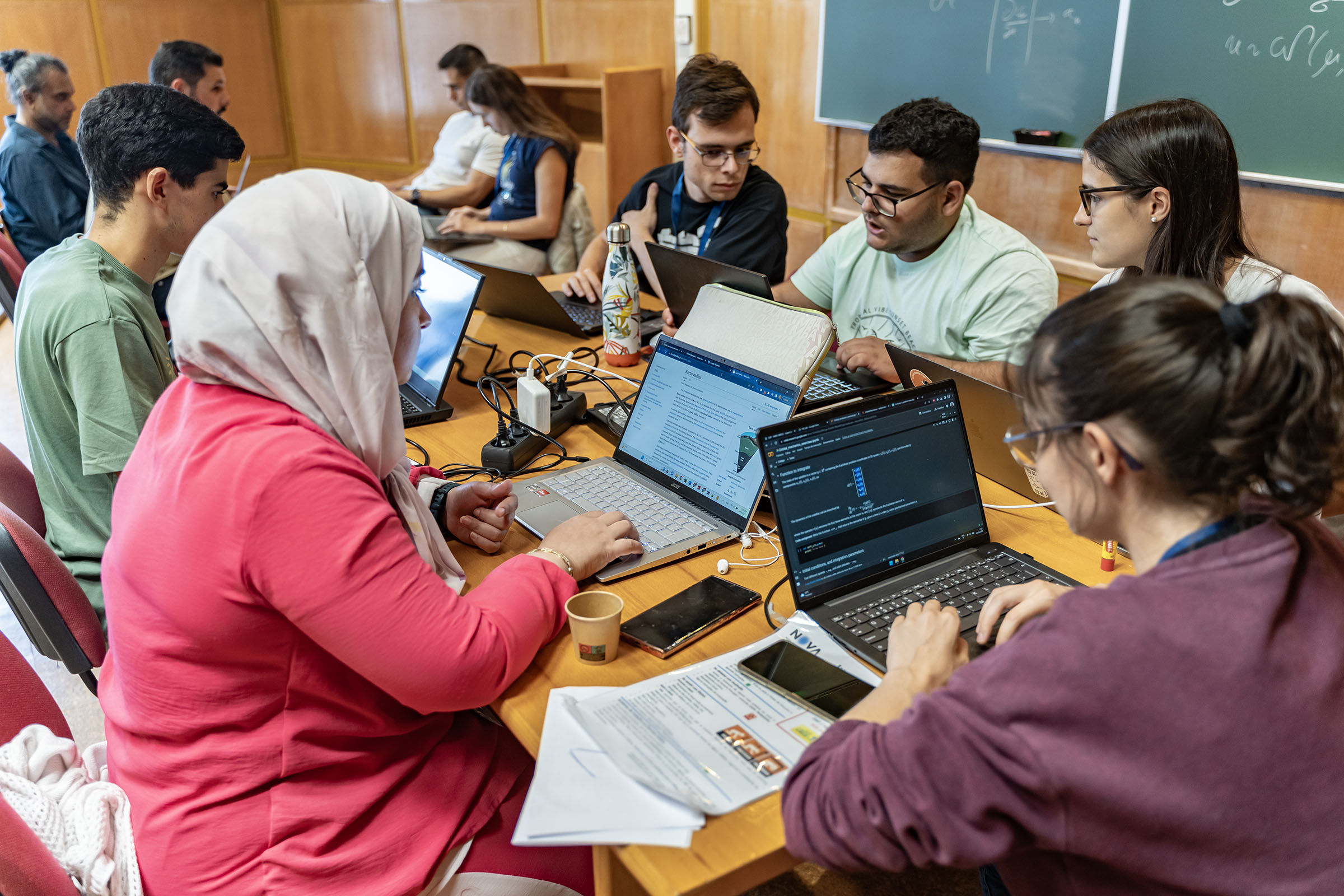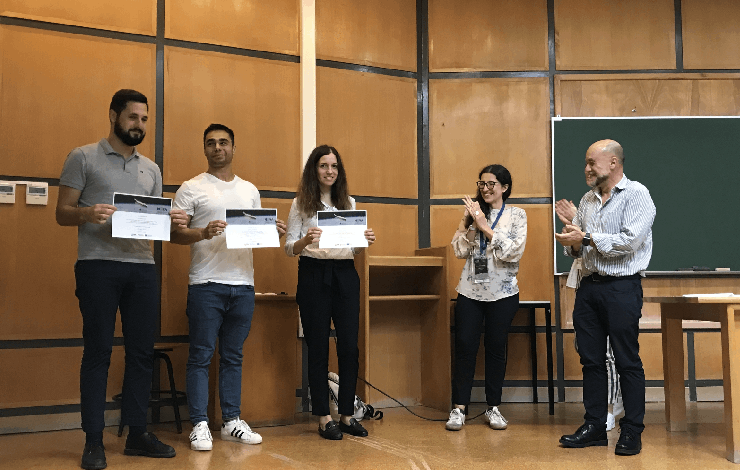14-09-2023
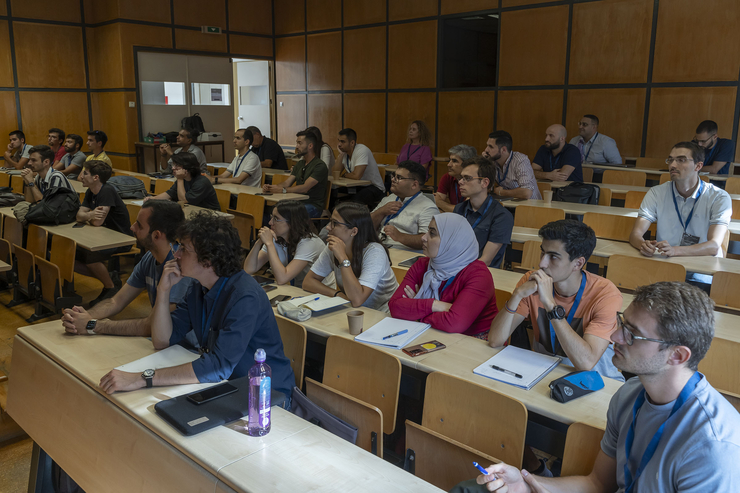
Over the course of a week, 50 participants from various nationalities and scientific backgrounds had the opportunity to explore Machine Learning applied to aerospace science at the 1st edition of NOVA FCT's ML4Space Summer School.
"This school was a success. Not only did we exceed the anticipated number of applications, but we also managed to attract participants from many parts of the world and promote what NOVA FCT is already doing in this field," explained the school's coordinator, Cláudia Soares, a professor at NOVA FCT's Department of Computer Science and a researcher at NOVA LINCS.
Machine learning (ML) is a discipline within Artificial Intelligence that develops algorithms to make predictions about future results or events based on data patterns. For example, when trying to predict whether it will rain tomorrow, an ML algorithm could use past meteorological data to provide a prediction about whether it will rain or not. These algorithms are practical in many situations, from predicting prices to diagnosing diseases. ML is used in natural language processing for speech recognition, translation, chatbots such as ChatGPT, in image recognition for face and object detection, and in cybersecurity to identify and prevent cyberattacks. It is also used in scientific fields such as astronomy and the discovery of new pharmaceutical products.
ML4Space provided participants with the opportunity to "train models and perform inference by combining algorithms with the physics of the problem," as Cláudia Soares pointed out, "as well as facilitating an exchange of experiences between researchers, students and industry professionals."
The organization of the program, the camaraderie, and an up-to-date overview of machine learning in the context of space were common points highlighted by the summer school's participants.
"Machine learning has been taking on a leading role, and that's why I enrolled in this course, as it's an area I'm very interested in," said Giovanni Granatto, one of the participants who works at GMV, a multinational technology company that operates in several business sectors, from aerospace to intelligent transportation systems, security, and information technologies. It is precisely in the application of ML to space that this young man wants to specialize, and this Summer School allowed him to "acquire advanced knowledge of machine learning and implement it in practice."
Nelson Lima, a PhD student in Applied Management Sciences, is one of the most surprising attendees. "I wanted to satisfy my curiosity about the application of machine learning to management, stepping out of my comfort zone and challenging this apparently unobvious but increasingly necessary connection," he explained.
For Fatina Basmadji, a professor and researcher at the Space Research Centre of the Polish Academy of Sciences, this was "an opportunity to improve my skills by combining diverse topics and testing their applicability in areas such as the third sector." She learned about ML4Space through a doctoral colleague in Poland and said, "I would definitely participate again."
ML4Space took place between September 1st and 8th at the Caparica Campus as part of the Artificial Intelligence Combating Space Debris Project, co-financed by the Recovery and Resilience Plan and the NextGenerationEU European Funds.
